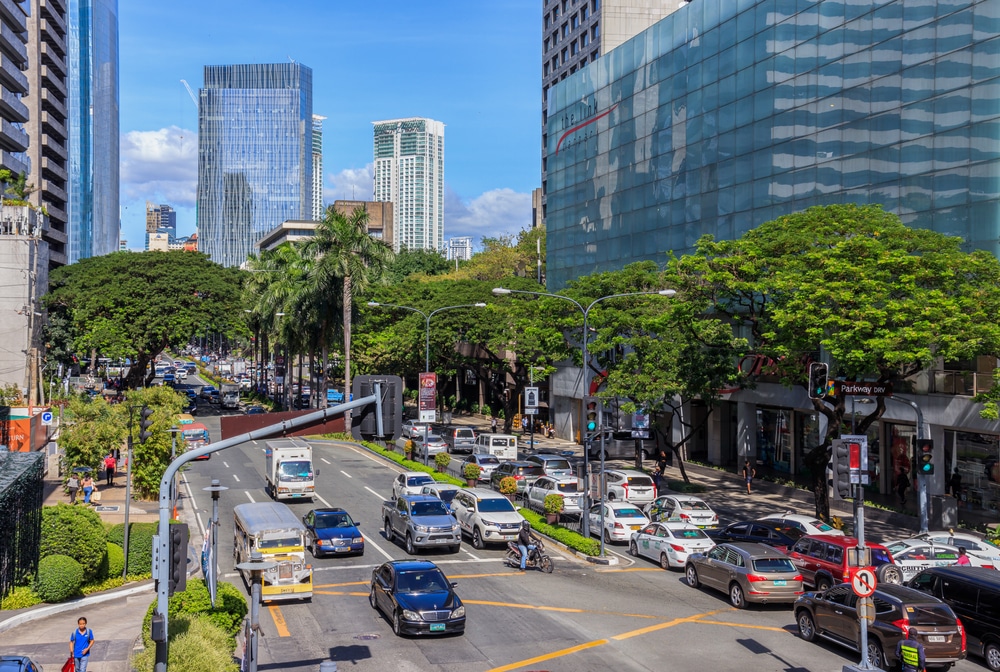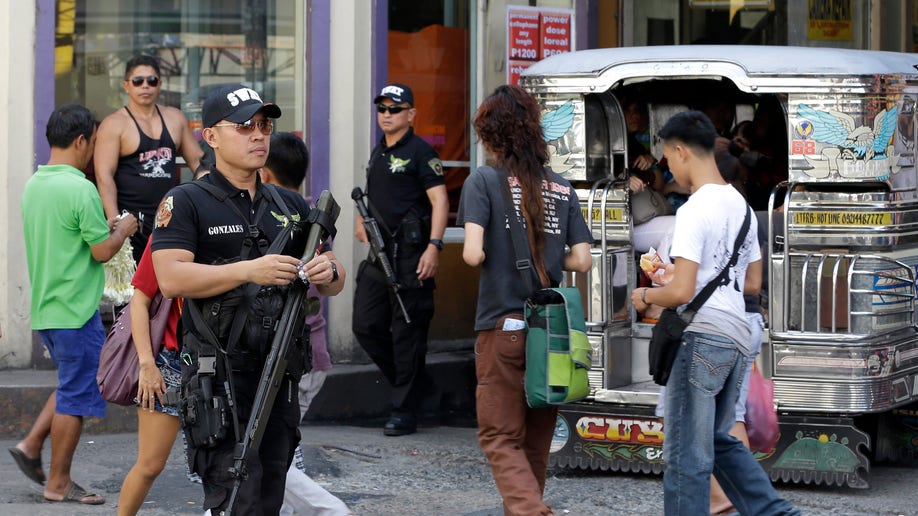Yes, generally safe. Exercise caution, follow local laws, and be aware of your surroundings. Research and adapt to the local culture for a smoother experience.

The State of Safety in the Philippines
Crime Rates
The Philippines experiences a mix of low-level and more serious crimes. Petty crimes such as pickpocketing and bag snatching are more common in crowded places and tourist areas. Violent crimes like armed robbery and homicide happen less frequently but are not unheard of. Major cities like Manila and Cebu have higher crime rates compared to rural areas. However, it’s worth noting that tourist destinations often have increased security measures in place. Here is a breakdown of some of the common crimes:
- Street Crimes: These are most common in highly populated areas.
- Online Scams: With the rise of the internet, online scams targeting foreigners have seen a significant increase.
- Drug-Related Crimes: Involvement in drugs is a serious offense in the Philippines and can lead to severe penalties.
Government Initiatives for Safety
The Philippine government has taken numerous steps to improve safety and security throughout the country, particularly for tourists and foreign nationals. Police visibility has increased in major cities and tourist destinations. Here are some of the key initiatives:
- Tourist Police: Special units designed to assist tourists in emergencies.
- CCTV Installation: Cameras are now a common sight in public places, significantly helping in crime detection and prevention.
- Community Policing: Encouraging community members to engage with police, thereby increasing neighborhood safety.
- Anti-Scam Campaigns: Regular warnings and education about scams and frauds that target foreigners.
Types of Crime Targeting Foreigners
Petty Crimes
Petty crimes, often crimes of opportunity, are the most common incidents foreigners might encounter. These include but are not limited to:
- Pickpocketing: This usually occurs in crowded public places like markets and public transport systems. Always keep an eye on your belongings.
- Bag Snatching: Motorcyclists or even pedestrians might grab bags from unaware tourists.
- Shoplifting: Some tourists report shoplifting incidents where they are the victims. It’s wise to be cautious even in seemingly safe commercial areas.
Violent Crimes
While less frequent, violent crimes do occur and can have severe consequences. Some examples include:
- Armed Robbery: This is more common in less affluent areas but can occur anywhere, especially late at night.
- Assault: Physical attacks are rarer but do happen, sometimes with the motive of robbery or, more rarely, hate crimes against foreigners.
- Kidnapping: Although quite rare, especially for tourists, kidnapping can occur, especially in the southern region where terrorist activity has been reported.

Scams and Frauds
Scams are an ever-present risk, especially for those who are new to the country and unfamiliar with local tactics. Some of the popular scams include:
- Taxi Scams: Always insist on using the meter in taxis to avoid being overcharged.
- Online Fraud: Be wary of anyone asking for money online. Online fraud is rampant, and foreigners often are targets.
- Investment Scams: Be cautious about local investment opportunities and always do your due diligence.
Safety During Natural Disasters
Typhoons
The Philippines is no stranger to typhoons, which often hit the country several times a year. Being in a typhoon-prone area, it is crucial for foreigners to understand the safety measures involved. Here are some tips:
- Weather Forecasting: Always keep an eye on weather forecasts, especially during the rainy season.
- Emergency Kits: Have an emergency kit prepared with essentials like water, food, and first aid.
- Safe Locations: Know the evacuation routes and safe locations nearest to you. Some areas have designated typhoon shelters.
- Travel Advisory: Check travel advisories related to weather conditions before planning any travel within the country.
Earthquakes
Earthquakes can happen without warning and are another natural disaster to be aware of in the Philippines.
- Earthquake Drills: Participate in earthquake drills if possible, as these give practical knowledge on what to do during an earthquake.
- Safe Zones: Identify safe zones within your home or accommodation, away from glass windows or objects that could fall.
- Communication Plan: Have a communication plan with loved ones and make sure to have a list of emergency contacts.
Floods
Flooding is common in low-lying areas and can be a risk during the monsoon season.
- Flood Maps: Familiarize yourself with flood-prone areas and avoid them during heavy rains.
- Emergency Services: Know the contact numbers of emergency services and relief organizations.
- Water Safety: Ensure you have access to clean drinking water, as floods can contaminate water supplies.
Cultural Sensitivities and How They Affect Safety
Religious Customs
The Philippines is predominantly a Catholic country, and religious customs can have an impact on your interactions. For instance:
- Dress Codes: In religious settings like churches, modest dress is often required. Failure to comply could attract unwanted attention.
- Religious Events: During religious festivals, crowd control can be an issue. It’s wise to be cautious of your surroundings at such times.
- Respect for Rituals: Showing disregard for local religious practices could not only be considered disrespectful but can sometimes escalate into confrontational situations.
Social Norms
Understanding the social fabric of the Philippines can go a long way in ensuring your safety.
- Personal Space: Filipinos value personal space and manners. Standing too close or making inappropriate comments could be perceived as rude or threatening.
- Local Etiquette: Being aware of local customs, like how to greet elders, can help you navigate social situations more safely.
- Public Behavior: Rowdy behavior or public drunkenness is frowned upon and can make you a target for petty crimes or scams.
Local Laws and Regulations
Ignorance of the law is not an excuse, and this is particularly important when you are in a foreign country.
- Drug Laws: Drug offenses carry heavy penalties, including imprisonment. Stay clear of any activities involving illegal substances.
- Traffic Rules: Unlike in some Western countries, jaywalking could get you fined in the Philippines.
- Local Ordinances: Some cities have unique laws, like liquor bans or curfews, that you need to be aware of.
Traveling Safely: Public Transport and Driving
Public Transportation Safety Tips
Public transport in the Philippines varies in terms of reliability and safety. Here’s how to navigate it:
- Bus Safety: Buses are generally safe but can get very crowded. Keep your belongings close to prevent pickpocketing.
- Taxi Etiquette: Always insist that taxi drivers use the meter, or agree on a price before the journey to avoid being overcharged.
- Ride-Sharing Services: Platforms like Grab are popular and generally considered safe for foreigners.
- Train and Subway: While convenient, be mindful of your belongings as these areas can be hotspots for petty crime.
Driving in the Philippines
If you’re considering driving, understanding local road conditions and laws is essential.
- Driving License: Ensure you have an international driving license alongside your original one.
- Road Conditions: Many roads can be in poor condition, and traffic rules are not always strictly enforced.
- Parking: Always park in well-lit areas, as car theft can be a concern in some locations.
Safety Tips for Foreigners
General Precautions
Safety begins with awareness. Here are some general precautions:
- Local SIM Card: Having a local SIM can be a lifesaver for navigation and emergency calls.
- Travel Insurance: Don’t skimp on travel insurance; make sure it covers medical emergencies and theft.
- Avoid Flashiness: Flashy jewelry or gadgets can make you an easy target for thieves.

Emergency Contacts
Having a list of emergency contacts is crucial for any foreigner residing in or visiting the Philippines.
- Local Emergency Number: The general emergency number in the Philippines is 911.
- Embassy Contacts: Always keep the contact information of your country’s embassy or consulate.
- Local Friends or Contacts: Having a local point of contact can be incredibly helpful in emergencies.